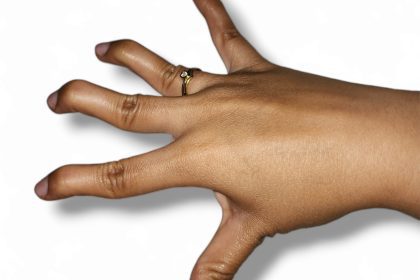Waking up with a numb hand can be an unsettling experience. The sensation of pins and needles or complete numbness often leaves many wondering what’s happening beneath the surface. Understanding why this occurs is not only fascinating but also crucial for ensuring your health and well-being.
Understanding the mechanics of numbness
Numbness in your hand, especially after sleeping on it, typically occurs due to compressed nerves or restricted blood flow. The body relies on an intricate network of nerves and blood vessels to supply oxygen and relay signals to various parts of your body. When pressure is applied to these nerves or blood vessels for an extended period, it can disrupt their function.
The pressure plays a significant role in this phenomenon. When you sleep in an awkward position or lie on your arm, you might compress major nerves like the ulnar, radial, or median nerve. These nerves are responsible for sensory and motor functions in your hands. Prolonged pressure can interrupt nerve signaling, causing temporary numbness.
The role of blood flow
Restricted blood flow is another significant factor in nighttime hand numbness. When blood cannot circulate properly to your hand, it results in a lack of oxygen and nutrients. This restriction leads to the tingling or numb sensation often referred to as “falling asleep.” Understanding this process helps explain why simply changing position can often resolve the issue.
Common causes and contributing factors
Sleeping position is one of the most frequent causes of hand numbness. Sleeping on your side with your arm under your head or body creates pressure points that can compress nerves and restrict blood flow. This common sleeping position, while comfortable for many, can lead to regular episodes of numbness.
Carpal tunnel syndrome represents another significant cause of nighttime hand numbness. This condition occurs when the median nerve, which runs through the wrist, becomes compressed. People with carpal tunnel syndrome may experience more frequent episodes of numbness, particularly during sleep.
Various underlying health conditions can also contribute to this issue. Conditions such as diabetes, multiple sclerosis, or vitamin deficiencies can cause nerve damage, making numbness more likely. Additionally, poor circulation conditions like peripheral artery disease or high blood pressure can impair blood flow, increasing the likelihood of numbness when pressure is applied.
Evaluating seriousness and seeking help
While most cases of sleep-related hand numbness are temporary and harmless, resolving quickly once you change positions, some situations warrant medical attention. If your hand remains numb long after waking up, or if the numbness occurs alongside other symptoms like weakness or pain, it’s important to consult a healthcare professional. These could indicate underlying neurological or circulatory issues requiring medical evaluation.
Prevention and practical solutions
Several practical solutions can help prevent nighttime hand numbness. Adjusting your sleeping position is the most effective approach. Try sleeping on your back or using a pillow to support your arms, reducing pressure on nerves and blood vessels. For those who suspect carpal tunnel syndrome, using a wrist brace during sleep can help keep the hand and wrist in a neutral position.
Regular physical activity plays a crucial role in prevention. Staying active during the day improves circulation and nerve health, reducing the likelihood of nighttime numbness. Additionally, choosing the right pillow can significantly impact your sleep posture. An ergonomic pillow helps maintain proper alignment of your neck and shoulders, reducing the risk of compressing nerves in your arm.
Understanding recovery and adaptation
When numbness occurs, the nervous system typically recovers quickly once pressure is relieved. The numbness fades within minutes because the nervous system is highly adaptive and works efficiently to restore normal function. During recovery, gently shaking your hand can stimulate circulation, while stretching your arm and fingers helps relieve tension. Massaging the affected area also promotes blood flow and speeds up recovery.
A common experience
Hand numbness from sleeping position can affect anyone, regardless of age or health status. While factors such as poor posture, underlying health conditions, or stress can increase susceptibility, understanding these causes helps in prevention. By making mindful adjustments to sleep positions and staying aware of warning signs, most people can minimize episodes of nighttime hand numbness while maintaining good hand health.
This story was created using AI technology.














